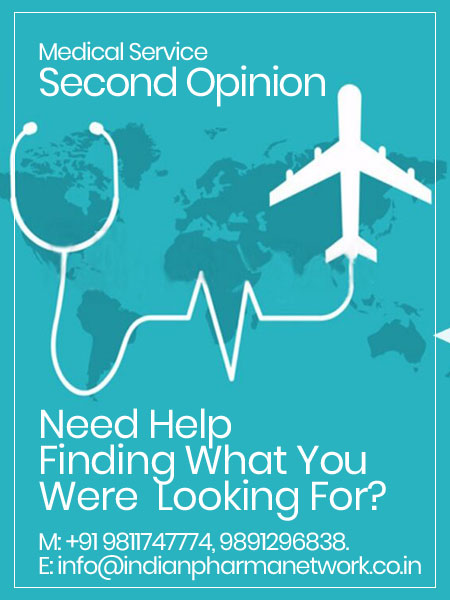Misconceptions about Cancer Treatment
Clinical trials are tightly regulated studies that help scientists understand new and better ways to heal people and prevent illnesses. As clinical trials are the heart of the medical advancements, volunteers are an essential part of this research as they help in examining the exact reaction the medicine on the human body. They can decrease the negative impact of a clinical trial or prevent it from happening at all.
Many health institutions across the world have offered the patients to be a part of new advancements and benefit from new treatments. Due to lack of understanding about the benefits, risks and opportunities that trials offer can sometimes prevent patients from taking advantage of the newest drugs and treatments made available.
Some people shy away from volunteering for clinical trials out of fear. Being the best consultant for cancer treatments, we decided to share some of the myths and real facts about clinical trials for cancer.
#MYTH 1. Clinical research trials do not provide any benefit to the Patient.
#Fact. As clinical research trials are conducted to test the potency and benefits of the medicine towards a disease, it is not acceptable to say that they provide no benefit to the patient. In fact, these trials give patients access to the latest drugs and procedures. According to most of the studies, patients who have participated in clinical trials have shown positive results than the existing or commonly available treatments to the patients.
#MYTH 2. During clinical research trials, patients are treated like human guinea pigs
#Fact. All medical organisations try their best to make feel good the patients. Often patients will not even feel like they are a part of the study or any research because these research trials incorporate the best available medicine. Researchers will alter the treatment according to the patient’s body and will judge whether it will enhance the patient’s quality of life or response rates.
#MYTH 3. During clinical research trials, patients are given an excess dose of sugar pills.
#Fact. The use of placebos is rare in cancer trials and are generally not used in the place of standard treatment. Participants will receive either the best standard treatment or the new treatment. Sometimes clinical trials compare standard treatment plus the study treatment to standard treatment plus a placebo. Using a placebo in this way can help remove bias from the clinical trial. Patients or patient’s first ones will always remain aware of the study uses a sugar element or a placebo as a part of the study treatment.
#MYTH 4. Cancer clinical trials are expensive and will not get covered under the health insurance policy.
#Fact. Cancer clinical trials or treatments tend to get covered under most of the health insurance policies. As per the FDA regulations, Phase 1, 2,3 and 4 trials meet under the definition of an approved clinical trial if it is conducted for the prevention, detection or treatment of cancer. “Routine patient care costs” means the costs of health care services, including drugs, items, devices and services that would be covered under the patient’s health plan if they were provided outside of a cancer clinical trial. Before having cancer treatment, it is important to verify your health insurance plan and check for the cancer treatment coverage.
#Myth 5. Cancer clinical trials are dangerous and patients are bound legally to participate, once they sign the form.
#Fact. Any medical research organisation would conduct clinical trials safely and ethically under the federal rules. All treatments are first tested in pre-clinical testing in laboratories. Once treatments are identified as potentially effective and not having any intolerable side effects, they move into human clinical trials. Before conducting the tests, the potential participants are taken through an informed consent process in which the study team fully describes the study, possible risks and benefits of the participation. Patients are closely monitored by physicians and the research team throughout the study.
Informed consent provides patients with information about their rights as a participant to help them decide whether to participate. Patients have the right to decline participation at any time. Their doctors will then switch to the standard treatment for their condition.
Here are some of the myths and their real facts that cause patients not to face clinical trials. Patients should understand that clinical trials are for them only and conducted after the treatment has been identified as effective.
To know more about cancer care treatments, it is best suitable for you to consult your physician. You can also reach out to the team of best pharmaceutical consultants at Indian Pharma Network as they will also provide any medication you need from any part of the globe.
Get to know more about the Indian Pharma at https://indianpharmanetwork.co.in/
You can also know more about us by reaching out to Mr Neeraj Nagpal on 9811747774.
References:
- https://health.clevelandclinic.org/10-biggest-cancer-clinical-trial-myths-busted/
- https://www.dallasnews.com/news/healthy-living/2013/09/30/cancer-clinical-trials-five-myths-worth-busting/
- https://www.cancercenter.com/community/blog/2018/11/busting-myths-three-dangerous-misconceptions-about-cancer-and-cancer-treatment
- https://www.urmc.rochester.edu/patients-families/health-matters/september-2016/myth-buster-the-truth-about-clinical-trials.aspx
- https://ufhealth.org/blog/clinical-trials-myth-busted


